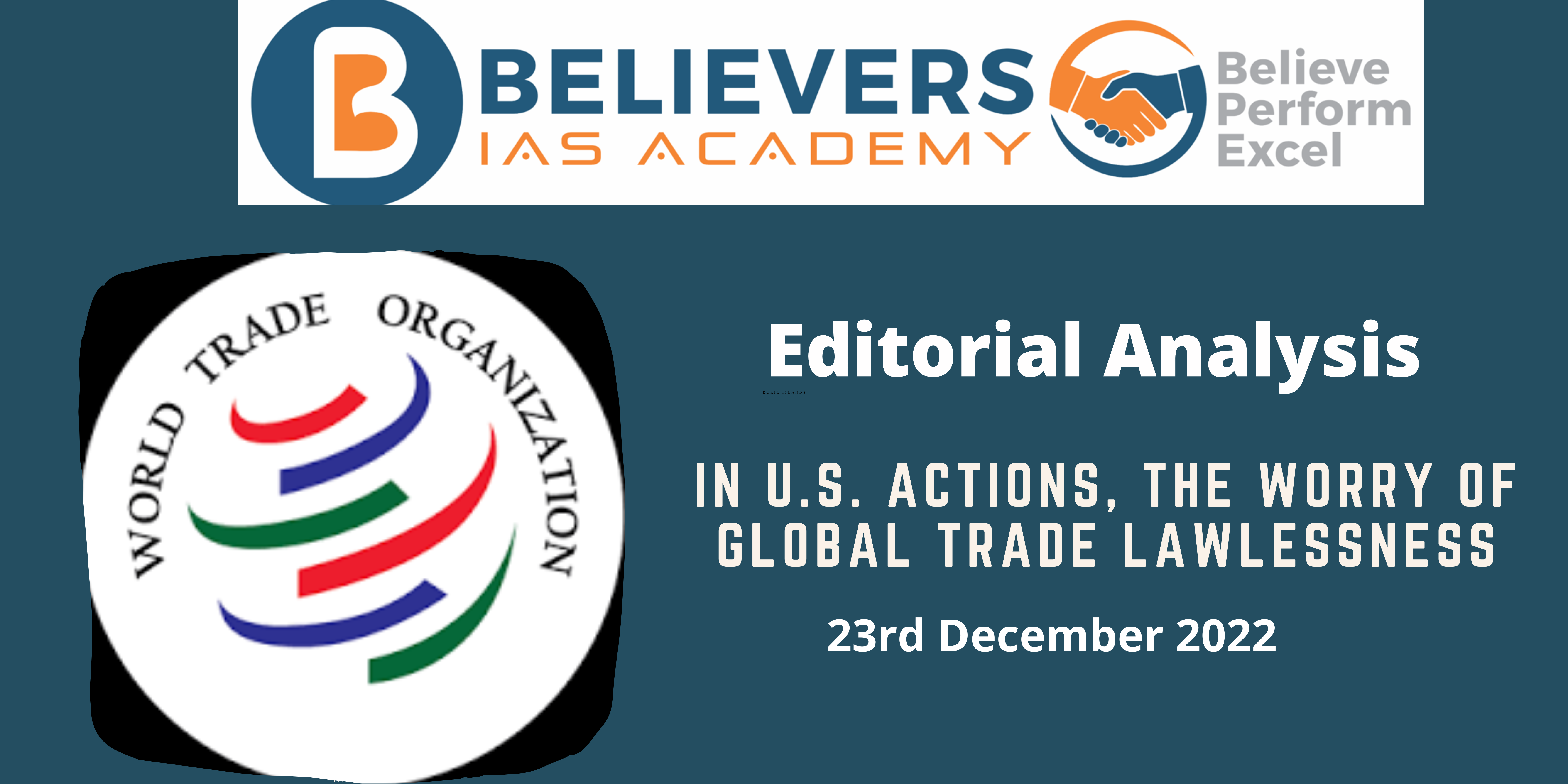In U.S. actions, the worry of global trade lawlessness
#GS-03 External Sector
For Prelims
World Trade Organization (WTO):
- The World Trade Organization (WTO) is an intergovernmental organization that regulates and facilitates trade between nations.
- World Trade Organization and two Bretton Woods Institutions, IMF and World Bank are the stalwarts of the international liberal economic order.
- It was founded on 1 January 1995, under the 1994 Marrakesh Agreement, by which it replaced the General Agreement on Tariffs and Trade (GATT) which was established in
- The WTO is the world’s largest international economic organization, with 164 member states who represents over 98% of global trade and global GDP.
- India had joined WTO as one of its founding members.
- The headquarters of WTO is located in Geneva, Switzerland.
For Mains:
US and the WTO:
- The United States during the presidency of Donald Trump had imposed tariffs of 25% and 10% on steel and aluminium, respectively.
- This was challenged by China, Norway, Switzerland, and Turkey in the WTO, which has declared that these tariffs were are inconsistent with WTO law.
US justifications:
- The justification of the US was that Article XXI(b)(iii) of GATT allows a country to take any action ‘which it considers’ necessary for the protection of its essential security interests taken in time of war or other ‘emergency in international relations’.
- US also tried to argue that the increase in the tariff rates primarily motivated by global excess capacity, which could lead to excessive imports of these two commodities used in defence production, thus compromising the U.S.’s national security.
Findings of WTO panel:
- WTO declared that the national security rule in Article XXI is not entirely ‘self-judging’ and can be reviewed by a panel as laid down in the Russia-Transit and the Saudi Arabia- IPR
- It also held that the global excess capacity does not constitute an ‘emergency in international relations’ under Article XXI(b)(iii) because it lacked severity.
Threat to Neoliberal Order:
- In the neoliberal order economic and security interests of countries are seen as relatively independent from each other.
- US supported this free trade regime in the past because it did not fear the growth of its strategic rivals such as China.
- However, since the difference between the size of the Chinese and American economies are shrinking at a rapid pace, the S. seems to have given up free trade and is swiftly embracing protectionism.
- The use of the national security as a justification for economic nationalism is an attempt to blunt the possibility of international courts reviewing state action.




